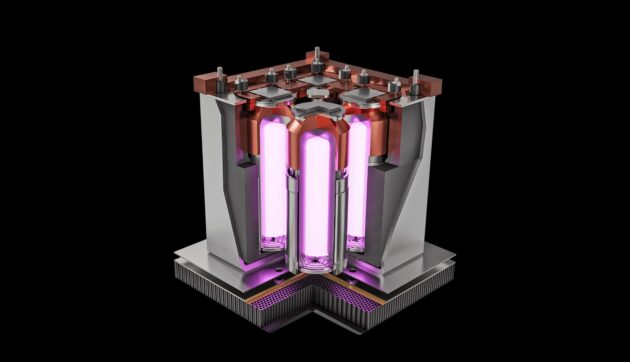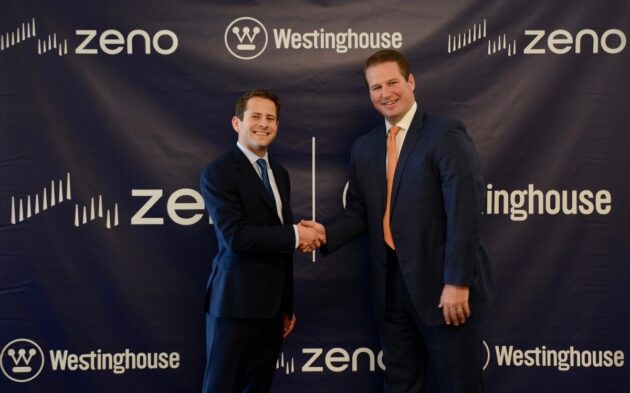
Zeno Power says it has selected Westinghouse Electric Co. to process the radioisotopes for its heat sources — creating a partnership that adds a key puzzle piece to its plan for a new type of radioisotope power system, or RPS.
“Working with Westinghouse, we will build the nuclear hardware for our RPSs to provide reliable power in the most critical domains of the 21st century — from the depths of the oceans to the surface of the moon,” Zeno co-founder and CEO Tyler Bernstein said today in a news release.
Radioisotope power systems that convert heat into electricity for off-grid power have been used for decades — for example, for space missions ranging from the Apollo moonshots to the Curiosity rover mission to Mars and the New Horizons mission to Pluto. Those systems have typically used plutonium-238, but Zeno is working on systems that make use of other radioisotopes such as strontium-90.
Strontium-90, which is created as a byproduct in nuclear fission reactors, can be an abundant fuel for power-generating systems. Existing strontium-based power systems tend to be bulky, however. Zeno’s design could generate more power with less bulk, opening the way for a wider range of applications.

Zeno is a spin-out from Vanderbilt University that has offices in Seattle as well as Washington, D.C. Last October, the startup demonstrated the heat source for its strontium-based RPS at Pacific Northwest National Laboratory in Richland, Wash. — setting the stage for the newly announced partnership with Westinghouse.
“Westinghouse has a long history of building innovative nuclear technologies that provide safe, reliable and carbon-free power. Our relationship with Zeno Power aligns with our vision to expand the use of nuclear into new markets,” said Dan Sumner, president of Westinghouse Operating Plant Services.
Zeno has won more than $43 million in contract awards from the U.S. Space Force, NASA and other government agencies to develop radioisotope power systems for small satellites, lunar hardware and maritime infrastructure. The venture was founded in 2018 and has attracted investment from Tribe Capital, 1517 Fund, AIN Ventures, Balerion Space Ventures, DCVC and other backers.
The current development plan calls for Zeno to bring its first commercial power sources to market by 2026.

